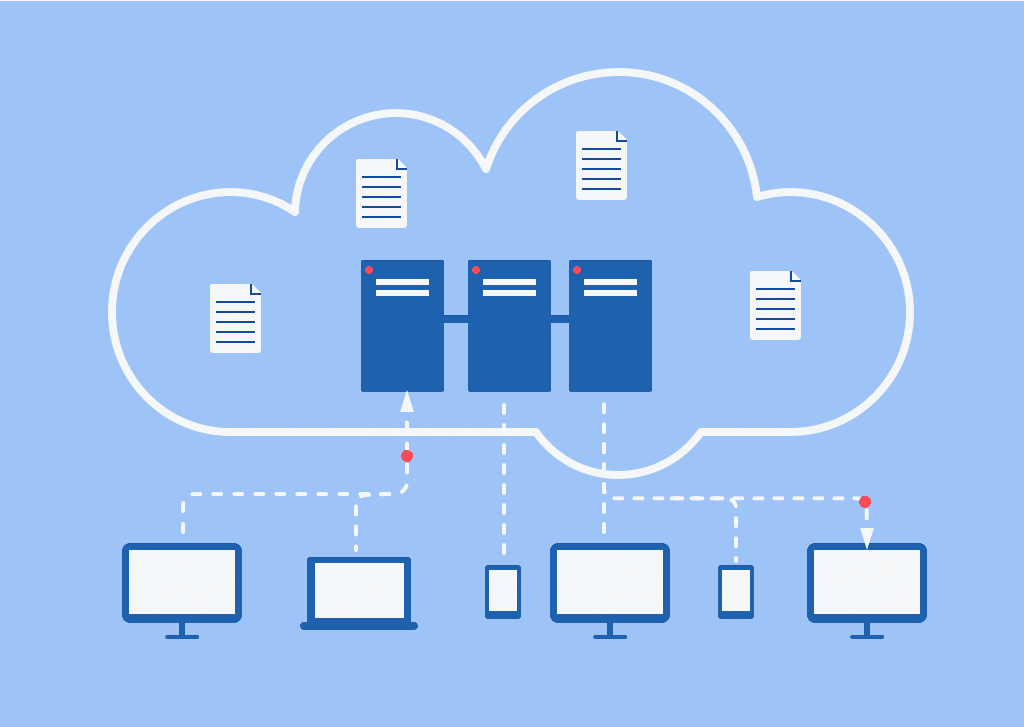Contract Repository: Where To Start
Creating a database to manage your contracts does not require expensive contract management software (though it is useful for a myriad of other functions). Contract and procurement teams can develop a simple contract repository with free templates so that contracts are neatly organized from the very beginning of their lifespan.
This organization method is useful for small businesses that have not grown enough to need a dedicated CLM system. While it’s still important to organize and maintain contracts, a contract lifecycle management system might not be available to smaller companies at their beginnings.
Having a contract repository in place will not only help keep everything in order while the company is growing, but will also provide a useful training tool for new hires.
It’s in a company’s best interest to develop a database as soon as possible. This way, it’s easier to keep track of which phases each active contract is in. Neglecting this need for an organization can only ever have a negative result.
Contract Databases: The Basics
Using a spreadsheet template, teams can keep track of key contract details, including but not limited to the name of the business in contract, the legal contract owner, contract type, contract length, status, reference number, important dates to remember (termination/renewal, etc.), value, additional data, and special notes.
Businesses can add or remove certain fields to better fit the needs of the company, which is part of what makes this starter-database so useful.
Keep in mind that while this system is free and relatively simple to use, there are other advantages and disadvantages to consider.
Advantages:
- This method is user-friendly and doesn’t require a lot of technical experience.
- It can be browser-based, depending on which browser a company uses.
- Access can be granted company-wide without a lot of time investment.
Disadvantages:
- This method does not have any further function than creating a static list.
- Searching for certain contracts can prove difficult if there is a lot on the list.
- The spreadsheet can’t trigger reminders.
Contract Databases: The Details
Creating a contract repository starts the organization process ahead of time. When a company grows enough to where it needs a contract management system, having contracts pre-organized will be a benefit.
Moving up to using a dedicated CLM system comes with several helpful features that businesses can’t utilize with spreadsheets.
Once scaling up makes a dedicated system appropriate, the benefits of evolving to this system are as follows.
Creates A More Versatile Repository
Once businesses invest in a CLM system, contracts from a spreadsheet repository can be migrated over to a more versatile database within the new system. It’s usually a very simple process that relies on AI to properly tag and sort contract information.
This means that once the contract database migrates to the new system, all of the impressive features of the new system can be used for any active contract, including simple search and retrieval features.
Provides Contract Templates
Contract management systems allow users to create helpful contract templates. These templates can be created, then stored in the system so that they can be used by all parties with access to the program. It allows simple self-service and time-saving when it comes to drawing up new, simple contracts.
From within the system, colleagues can not only create new contracts, but collaborate, negotiate, and sign contracts all in the same convenient location.
Allows Teams To Set Contract Reminders
Being able to set up contract reminders is a lifesaver. When in-house lawyers and procurement team members can get ahead of deadlines, it saves the company time and money.
In addition, companies can keep track of their obligations and risks. Once a certain date arrives, reminders can trigger to keep teams up to speed on what they need to do, and what they expect from business partners.
Further benefits of a dedicated system include:
-
Contract tools being browser-based
-
Systems are scalable
-
Systems are also intuitive and user-friendly
A single setback when it comes to using a dedicated system is the fact that most systems are browser-based. Because of this, static files often fall short of being able to take advantage of the full range of functions.
It’s crucial for companies to have their contracts neatly organized. No matter the size of the business, there are ways to keep track of contracts in all of their phases. Using a free system will work for small companies, and because of the pre-organization, it will be far simpler to move up to a dedicated CLM system in the future.
Take advantage of free organization tools and templates early. By doing so, businesses can enable themselves to grow faster, operate more successfully, and make the process of migrating to a bigger system much easier when the time comes.
